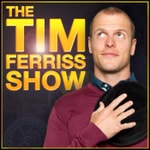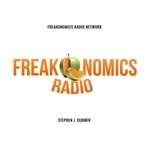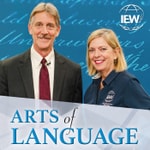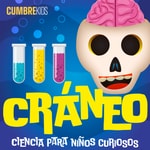The Last Theory – Details, episodes & analysis
Podcast details
Technical and general information from the podcast's RSS feed.
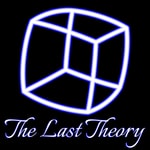
The Last Theory
Mark Jeffery
Frequency: 1 episode/18d. Total Eps: 73

Recent rankings
Latest chart positions across Apple Podcasts and Spotify rankings.
Apple Podcasts
🇨🇦 Canada - physics
31/07/2025#69🇬🇧 Great Britain - physics
31/07/2025#72🇩🇪 Germany - physics
31/07/2025#92🇺🇸 USA - physics
31/07/2025#82🇫🇷 France - physics
31/07/2025#61🇨🇦 Canada - physics
30/07/2025#69🇬🇧 Great Britain - physics
30/07/2025#71🇩🇪 Germany - physics
30/07/2025#90🇺🇸 USA - physics
30/07/2025#74🇫🇷 France - physics
30/07/2025#60
Spotify
No recent rankings available
Shared links between episodes and podcasts
Links found in episode descriptions and other podcasts that share them.
See all- https://www.nasa.gov/
405 shares
- https://www.ox.ac.uk/
47 shares
- https://www.jpl.nasa.gov/
46 shares
- https://twitter.com/EricRWeinstein
26 shares
- https://twitter.com/getjonwithit
19 shares
- https://twitter.com/Ananyo
5 shares
RSS feed quality and score
Technical evaluation of the podcast's RSS feed quality and structure.
See allScore global : 73%
Publication history
Monthly episode publishing history over the past years.
What precisely is causal invariance?
Episode 60
dimanche 28 juillet 2024 • Duration 15:10
Causal invariance is a crucial concept in Wolfram Physics.
It’s how we get special relativity from the Wolfram model.
It’s how we get quantum mechanics from the Wolfram model.
So what precisely is causal invariance?
This question will take us deep into the multiway graph, to an even deeper question: what is causality?
—
What is the multiway graph? video ⋅ podcast ⋅ article
—
The Last Theory is hosted by Mark Jeffery, founder of Open Web Mind
I release The Last Theory as a video too! Watch here.
The full article is here.
Kootenay Village Ventures Inc.
Jonathan Gorard: the complete first interview
Episode 59
samedi 1 juin 2024 • Duration 02:48:59
I’ve heard from many of you that you’d like the whole of my conversation with Jonathan Gorard in a single podcast.
So here it is, the complete first interview.
These three hours are a brilliant exposition of Wolfram Physics from a figure whose contributions to the project are second to none.
—
Jonathan Gorard
- Jonathan Gorard at The Wolfram Physics Project
- Jonathan Gorard on Twitter
- The Centre for Applied Compositionality
- The Wolfram Physics Project
Jonathan’s seminal papers
- Some Relativistic and Gravitational Properties of the Wolfram Model; also published in Complex Systems
- Some Quantum Mechanical Properties of the Wolfram Model
Stephen Wolfram’s writings
- Announcement of the Wolfram Physics Project
- A New Kind of Science
- A project to find the Fundamental Theory of Physics
A complete list of links to the research, concepts and people mentioned by Jonathan is here
Images
- Calabi–Yau manifold by Andrew J. Hanson, Indiana University, who allows use with attribution
- Feynman diagram by Joel Holdsworth, public domain
- John von Neumann – Los Alamos National Laboratory
- Stanisław Ulam – Los Alamos National Laboratory
- Wolf-Rayet nebula – Nebula surrounding the Wolf-Rayet star WR124 in the constellation Sagittarius. (Produced with the Wide-Field Planetary Camera 2, Hubble Space Telescope.) – NASA – NSSDCA Photo Gallery – Yves Grosdidier (University of Montreal and Observatoire de Strasbourg), Anthony Moffat (Universitie de Montreal), Gilles Joncas (Universite Laval), Agnes Acker (Observatoire de Strasbourg) – Public domain
- Stele from Retortillo by Emilio Gómez Fernández licensed under CC BY-SA 4.0
- Spinning and chargend black hole with accretion disk by Simon Tyran, Vienna (Симон Тыран) licensed under CC BY-SA 4.0
- Альфред Грэй в Греции by AlionaKo licensed under CC BY-SA 3.0
- Crab Nebula, as seen by Herschel and Hubble – courtesy: NASA/JPL-Caltech – credit: ESA/Herschel/PACS/MESS Key Programme Supernova Remnant Team; NASA, ESA and Allison Loll/Jeff Hester (Arizona State University) – reproduced under JPL Image Use Policy
For images from the Los Alamos National Laboratory: Unless otherwise indicated, this information has been authored by an employee or employees of the Triad National Security, LLC, operator of the Los Alamos National Laboratory with the U.S. Department of Energy. The U.S. Government has rights to use, reproduce, and distribute this information. The public may copy and use this information without charge, provided that this Notice and any statement of authorship are reproduced on all copies. Neither the Government nor Triad makes any warranty, express or implied, or assumes any liability or responsibility for the use of this information.
—
The Last Theory is hosted by Mark Jeffery, founder of Open Web Mind
I release The Last Theory as a video too! Watch here.
Kootenay Village Ventures Inc.
How to tell if space is curved
Episode 50
jeudi 2 novembre 2023 • Duration 11:38
What if you’re inside a universe, and you want to know whether space is curved?
The reason I’m asking is that according to Einstein’s general theory of relativity, our universe is curved, by the presence of matter.
If Wolfram Physics is to be a true model of our universe, then the space represented by the hypergraph must also be curved by the presence of matter.
Which means that determining whether space is curved is crucial to Jonathan Gorard’s derivation of Einstein’s equations from the Wolfram model.
Fortunately, there’s a way to find out that’s so simple that even a crab or a space frog could do it.
Here’s how to tell if your universe curved.
—
Dimensionality:
- How to measure the dimensionality of the universe
- Are Wolfram’s graphs three‑dimensional?
- What are dimensions in Wolfram’s universe?
Space-time:
Euclidean geometry:
—
The Last Theory is hosted by Mark Jeffery, founder of the Open Web Mind
I release The Last Theory as a video too! Watch here.
The full article is here.
Kootenay Village Ventures Inc.
How special is general relativity? with Jonathan Gorard
Episode 49
jeudi 19 octobre 2023 • Duration 06:16
I asked Jonathan Gorard what it felt like when he realized that general relativity can be derived from the hypergraph.
His answer took us in an unexpected direction.
If the Wolfram model is to be an accurate model of our universe, then it must give us the Einstein equations.
But what if any old model with any old rules can give us the Einstein equations?
What if general relativity isn’t so special?
This is one of the shorter excerpts from my conversation with Jonathan, but it’s a fascinating one.
It takes us to one of the most powerful aspects of the Wolfram model: its ability to answer questions about why our universe is the way it is, questions that were once in the realm of philosophy but may now be within the scope of physics.
—
Jonathan Gorard
- Jonathan Gorard at The Wolfram Physics Project
- Jonathan Gorard at Cardiff University
- Jonathan Gorard on Twitter
- The Centre for Applied Compositionality
- The Wolfram Physics Project
Concepts mentioned by Jonathan
—
The Last Theory is hosted by Mark Jeffery, founder of the Open Web Mind
I release The Last Theory as a video too! Watch here.
Kootenay Village Ventures Inc.
Why scientific theories need not make predictions
Episode 48
samedi 7 octobre 2023 • Duration 13:08
In my exploration of Wolfram Physics, I’ve come across one objection more than any other.
Over and over again, people have told me that the Wolfram model must be rejected because it makes no predictions.
I could respond by saying that Wolfram Physics does make predictions. It predicts Einstein’s equations. It predicts Schrödinger’s equation.
But it’s true that it doesn’t make any predictions that differ from those of general relativity and quantum mechanics. At least, not yet.
So here’s my more robust response to the objection: all scientific theories make no predictions when they’re first formulated.
If we dismiss any new theory solely because it doesn’t make any predictions, then we’d dismiss all new theories.
It’s time for academics to learn the lessons of the history of science, and open their minds to bold, new ideas, like Wolfram Physics.
—
Ideas:
- Tycho Brahe
- The paths of the planets are elliptical according to Johannes Kepler
- Philosophiæ Naturalis Principia Mathematica by Isaac Newton
- Astronomers’ test of Albert Einstein’s general theory of relativity
- Against Method by Paul Feyerabend
- The Newtonian Casino by Thomas Bass
Ancient astronomies:
Images:
- Paul Feyerabend Berkeley by Grazia Borrini-Feyerabend reproduced with permission
—
The Last Theory is hosted by Mark Jeffery, founder of the Open Web Mind
I release The Last Theory as a video too! Watch here.
The full article is here.
Kootenay Village Ventures Inc.
How to derive general relativity from Wolfram Physics with Jonathan Gorard
Episode 47
jeudi 21 septembre 2023 • Duration 13:38
Here’s a masterclass from Jonathan Gorard.
One of the most compelling results to come out of the Wolfram Physics is Jonathan’s derivation of the Einstein equations from the hypergraph.
Whenever I hear anyone criticize the Wolfram model for bearing no relation to reality, I tell them this: Jonathan Gorard has proved that general relativity can be derived from the hypergraph.
In this excerpt from our conversation, Jonathan describes how making just three reasonable assumptions – causal invariance, asymptotic dimension preservation and weak ergodicity – allowed him to derive the vacuum Einstein equations from the Wolfram model.
In other words, the structure of space-time in the absence of matter more or less falls out of the hypergraph.
And making one further assumption – that particles can be treated as localized topological obstructions – allowed Jonathan to derive the non-vacuum Einstein equations from the Wolfram model.
In other words, the structure of space-time in the presence of matter, too, falls out of the hypergraph.
It’s difficult to overstate the importance of this result.
At the very least, we can say that the Wolfram model is consistent with general relativity.
To state it more strongly: we no longer need to take general relativity as a given; instead, we can derive it from Wolfram Physics.
—
Jonathan’s seminal paper on how to derive general relativity
- Some Relativistic and Gravitational Properties of the Wolfram Model; also published in Complex Systems
Jonathan Gorard
- Jonathan Gorard at The Wolfram Physics Project
- Jonathan Gorard at Cardiff University
- Jonathan Gorard on Twitter
- The Centre for Applied Compositionality
- The Wolfram Physics Project
People mentioned by Jonathan
Research mentioned by Jonathan
- The volume of a small geodesic ball of a Riemannian manifold by Alfred Gray
- Tubes by Alfred Gray
Concepts mentioned by Jonathan
- Hausdorff dimension
- Geodesic balls, tubes & cones
- Ricci scalar curvature
- Ricci curvature tensor
- Einstein equations
- Einstein–Hilbert action
- Relativistic Lagrangian density
- Causal graph
- Tensor rank
- Trace
From A Project to find the Fundamental Theory of Physics by Stephen Wolfram:
Images
- Spinning and chargend black hole with accretion disk by Simon Tyran, Vienna (Симон Тыран) licensed under CC BY-SA 4.0
- Альфред Грэй в Греции by AlionaKo licensed under CC BY-SA 3.0
—
The Last Theory is hosted by Mark Jeffery, founder of the Open Web Mind
I release The Last Theory as a video too! Watch here.
Kootenay Village Ventures Inc.
How to derive quantum mechanics from Wolfram Physics with Jonathan Gorard
Episode 46
jeudi 7 septembre 2023 • Duration 15:34
Here’s the first of two crucial excerpts from my conversation with Jonathan Gorard.
The core idea of Wolfram Physics is that we can model the universe as a hypergraph. If we want this idea to be taken seriously, we’re going to have to derive physics from the hypergraph.
The twin pillars of physics, as we know it, are quantum mechanics and general relativity.
In this episode, Jonathan explains how quantum mechanics can be derived from the Wolfram model, indeed, how quantum mechanics unexpectedly fell out of the model.
It’s a fascinating story.
We start with the role of the observer. According to Jonathan, it turns out not to be necessary to narrow our focus to only causally invariant rules.
Why not? Because macroscopic observers like ourselves impose causal invariance through our coarse-graining of the hypergraph. In other words, by squinting at the universe, seeing only its large-scale features and glossing over the finer details, we reduce multiple paths through the multiway graph to a single timeline, and, in the process, impose causal invariance.
Jonathan goes on to explain that this coarse-graining can be modelled with completion rules. These are fake rules, similar to the true rules of Wolfram Physics, but posited solely to model the coarse-graining of the hypergraph by the observer.
And here’s the thing. According to Jonathan, these completion rules are formally equivalent to the collapse of the wavefunction in quantum mechanics. In other words, we finally have an explanation for how the observer causes the collapse of the wavefunction, reducing Schrödinger’s half live, half dead cat to one that’s either dead or alive.
If Jonathan’s right, then this is a true breakthrough, not just in quantum mechanics, but in the philosophy of physics.
In the next episode, we’ll move on to the other pillar of physics: Jonathan will explain how to derive general relativity from the hypergraph.
There’s much more to explain about each of these derivations, but we’re finally getting to the crux of Wolfram Physics, the question of whether it can, after all, model our universe.
—
Jonathan’s seminal paper on how to derive quantum mechanics
Jonathan Gorard
- Jonathan Gorard at The Wolfram Physics Project
- Jonathan Gorard at Cardiff University
- Jonathan Gorard on Twitter
- The Centre for Applied Compositionality
- The Wolfram Physics Project
Concepts mentioned by Jonathan
- Causal invariance
- Computational irreducibility
- Celestial mechanics
- Molecular dynamics
- Space-like separation
- Heisenberg’s uncertainty principle
- Heisenberg’s microscope experiment
- Quantum entanglement
- Bell’s inequalities
- Multiway system
- Coarse-graining
- Schrödinger equation
- Unitary operator
- Hermitian operator
- Conjugate transpose operation
- Time reversal
- Wavefunction collapse
- Quantum interference
- Quantum tunnelling
Stephen Wolfram’s books
—
The Last Theory is hosted by Mark Jeffery, founder of the Open Web Mind
I release The Last Theory as a video too! Watch here
Kootenay Village Ventures Inc.
Peer review is suffocating science
Episode 45
jeudi 24 août 2023 • Duration 14:37
You know peer review, right?
It’s the way academics check each other’s research papers.
It ensures that only the good ones are published and prevents the bad ones from getting through.
Right?
Wrong.
Peer review does precisely the opposite of what you think it does.
It prevents the good papers from being published, and ensures that only the bad ones get through.
Peer review is suffocating science.
If we want to reverse the stagnation of science over the last 50 years, then we’ve got to get rid of peer review.
—
I highly recommend you read Adam Mastroianni’s splendid article The rise and fall of peer review
I first heard Adam’s ideas about peer review in his conversation Adam Mastroianni on Peer Review and the Academic Kitchen with Russ Roberts on EconTalk
Why has there been no progress in physics since 1973?
Scientific papers:
- The journal Nature began to require peer review in 1973
- Millions of academic articles are published every year
- Some scientists simply make stuff up
- Fraudulent studies make it into respectable journals like Science, Nature and The Lancet
Physicists:
- Isaac Newton
- Albert Einstein’s four papers published in 1905
- Max Planck’s principle that science progresses one funeral at a time
My projects:
Image of Adam Mastroianni by permission from Adam Mastroianni
—
The Last Theory is hosted by Mark Jeffery, founder of the Open Web Mind
I release The Last Theory as a video too! Watch here
The full article is here
Kootenay Village Ventures Inc.
Is the universe a tautology? with Jonathan Gorard
Episode 44
jeudi 10 août 2023 • Duration 10:30
“Sorry, this is now getting very metaphysical,” says Jonathan Gorard part way through this excerpt from our conversation.
We start by talking about applying more than one rule to the hypergraph to create rulial multiway systems.
This takes us part way towards applying every possible rule, in other words, towards the ruliad.
We move on to the idea of measuring the complexity of a structure in terms of the minimum amount of information needed to express it.
Jonathan applies this idea to the ruliad, pointing out that it takes almost no information to express, since it encompasses all possible rules.
Since he believes, however, that there is some content to the universe – that it is not a tautalogy – this leads Jonathan to reject the idea of the ruliad.
We dig into why he has this intuition is that the universe is not a tautalogy.
Jonathan invokes theologians like John Duns Scotus, who promulgated the idea the the world is neither completely reducible nor completely irreducible.
He follows the scholastics in steering a middle path, suggesting that there’s enough content in the universe that it’s interesting, but not so much content that we can’t write down well-defined laws of nature.
This brings us, for the first time, to the role of the observer in the Wolfram model.
Again, Jonathan steers a middle path between placing the computational burden entirely on the universe and placing the computational burden entirely on the observer.
I find this 9-minute exposition fascinating. It gets to the heart of some of the philosophical differences between Jonathan Gorard and Stephen Wolfram, and to the nature of the universe and our role as observers.
—
Jonathan Gorard
- Jonathan Gorard at The Wolfram Physics Project
- Jonathan Gorard at Cardiff University
- Jonathan Gorard on Twitter
- The Centre for Applied Compositionality
- The Wolfram Physics Project
People mentioned by Jonathan
Research mentioned by Jonathan
- Homotopies in Multiway (Non-Deterministic) Rewriting Systems as n-Fold Categories by Xerxes D. Arsiwalla, Jonathan Gorard, Hatem Elshatlawy
- Pregeometric Spaces from Wolfram Model Rewriting Systems as Homotopy Types by Xerxes D. Arsiwalla, Jonathan Gorard
Concepts mentioned by Jonathan
- Rulial Multiway System
- ∞-category
- ∞-groupoid
- (∞,1)-topos
- Grothendieck’s homotopy hypothesis
- Algorithmic complexity theory
- Algorithmic information theory
- Kolmogorov complexity
- Einstein field equations
- Curvature invariant
- Qualia
—
The Last Theory is hosted by Mark Jeffery, founder of the Open Web Mind
I release The Last Theory as a video too! Watch here.
Kootenay Village Ventures Inc.
What is a particle in Wolfram’s universe?
Episode 43
jeudi 27 juillet 2023 • Duration 17:32
It’s pretty easy to see how three-dimensional space might arise from Wolfram Physics.
The hypergraph kinda looks like space, and, for some rules, it kinda looks like it’s three-dimensional.
But our universe isn’t just empty three-dimensional space.
It’s mostly empty space, but there are also particles moving through that space: photons, neutrinos, electrons, quarks.
Sometimes, these particles interact, annihilating each other and producing new particles.
If Wolfram Physics is to be a successful model of our universe, it must, of course, model these elementary particles and their interactions.
So where are the particles in the hypergraph?
What is a particle in Wolfram’s universe?
—
Animations:
- Thanks to Alan Dewar for permission to use his excellent implementation of Conway’s Game of Life for many of the animations in the video
- Thanks also to Chris Rowett for permission to use his Life Viewer, a beautiful implementation of Conway’s Game of Life, which I used for the greyship animation in the video and image in the thumbnail
- Another implementation of Conway’s Game of Life, which reproduces the Life Lexicon from ConwayLife.com, is at playgameoflife.com
Sources:
- Talking of ConwayLife.com, that’s another incredible resource for information on Conway’s Game of Life
Tools:
- I created an RLE to text converter to convert Run Length Encoded patterns to plain text format
Images:
- John H Conway 2005 by Thane Plambeck licensed under CC BY 2.0
Sounds:
- Crickets choir by Serg Childed licensed under CC BY-SA 4.0
—
The Last Theory is hosted by Mark Jeffery, founder of the Open Web Mind
I release The Last Theory as a video too! Watch here.
The full article is here.
Kootenay Village Ventures Inc.
